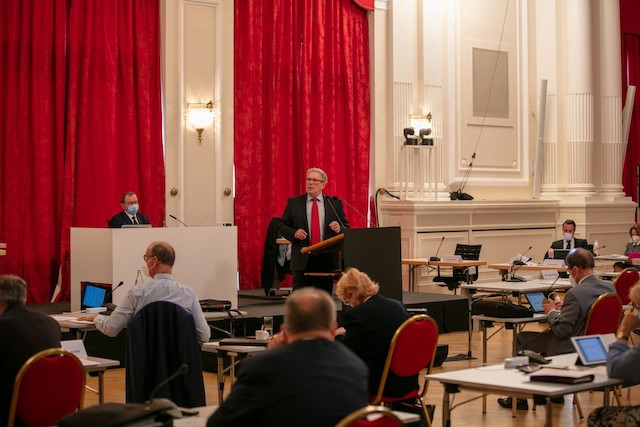Restaurants, bars and cafés will be able to open their terraces to customers starting 7 April, a symbolic gesture towards the hospitality industry proposed by the government last week.
All other restrictions will remain in place. And terraces will only be able to welcome punters between 6am and 6pm at tables for two, unless the guests are from the same household. Tables must be 1.5 metres apart or be separated by, for example, a plastic shield.
Customers can only consume food and drink while seated and must wear masks when not at their table. Staff must also wear masks at all times. Unlike first planned, restaurants won’t be taking down contact details of customers.
Only establishments with a permanent and authorised outdoor space can open their terrace. Financial aid to the hospitality sector will continue whether an establishment decides to open or not.
The ADR opposition party demanded that terraces should be allowed to open until 9pm, saying the short opening hours would hamper business. The CSV meanwhile argued that the opening of terraces could send the wrong signal to the general public, urging caution amid rising virus case numbers.
Mars Di Bartolomeo (LSAP), who chairs the parliament’s health committee, defended the move, saying he trusts the hospitality sector and also customers to respect the restrictions in place.
The cautious step towards reopening the hospitality sector comes at a time when Luxembourg’s neighbours--Belgium, France and Germany--are tightening lockdown measures.
And the Luxembourg numbers are also far from encouraging, with infections up by 7.7% last week compared to the week before. On Wednesday, the health ministry posted 387 new infections, the highest daily tally since 22 December last year.
While numbers are high, they are comparatively stable, said Di Bartolomeo, adding that intensive care units are between 20 to 30% occupied, well below numbers seen in neighbouring countries.
Di Bartolomeo said Luxembourg’s large-scale testing programme and contact tracing are effective but added that parliament could rapidly intervene if the situation deteriorates.
This article was first published in French on Paperjam and has been translated and edited for Delano.
